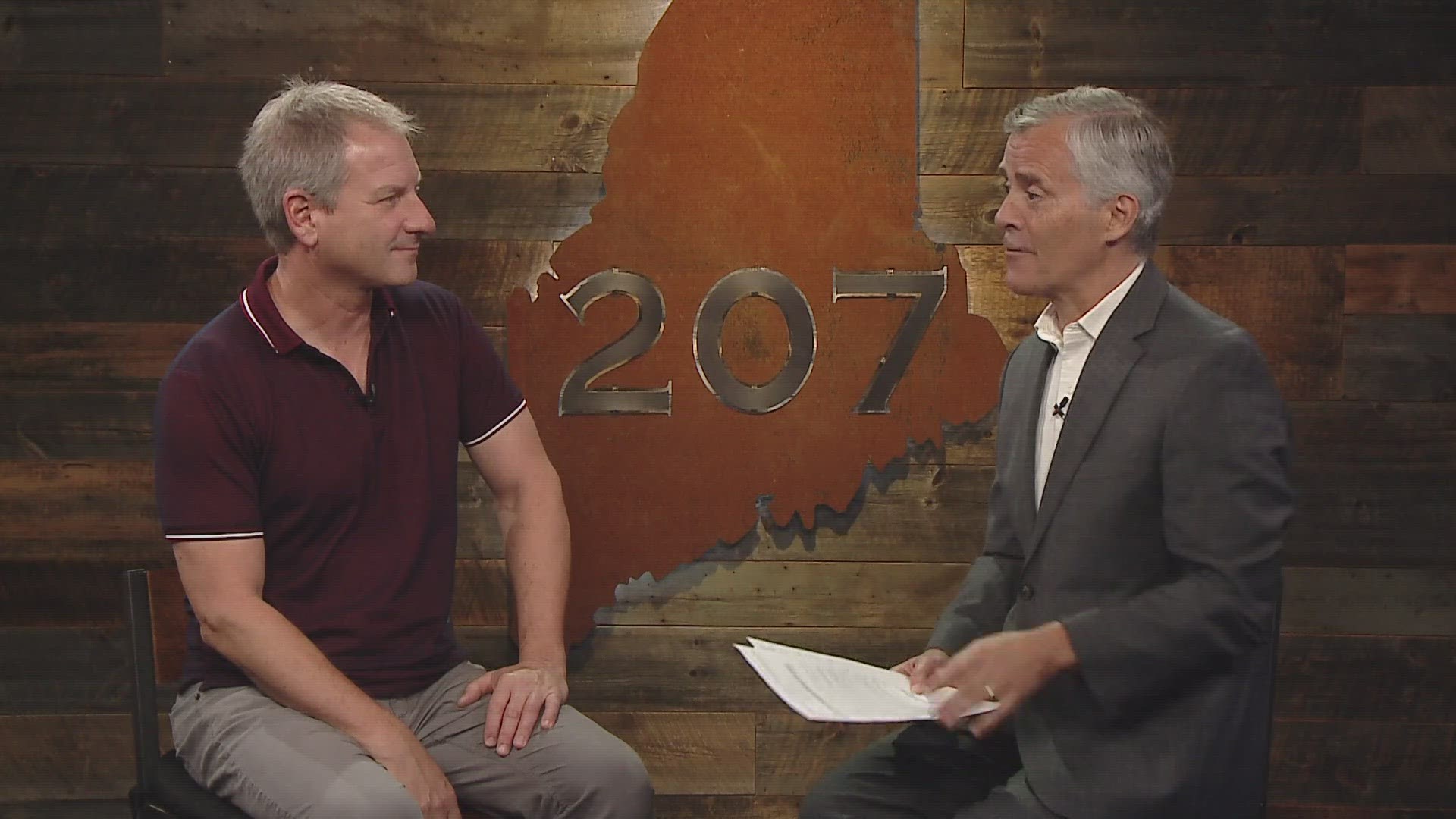PORTLAND, Maine — Artificial Intelligence—AI, for short—isn’t coming. It’s already here, and a lot of people, as they learn more about it, are starting to worry about whether it’s going to take their jobs away.
Are those concerns justified? If so, what can employees do to protect their livelihoods? 207’s tech guy, Rich Brooks of Flyte New Media in Portland, joined us to discuss those questions and more. Here are the talking points Rich provided.
Right now in Hollywood, actors and writers are striking, and one of the big points of contention is the use of AI... what can you tell us about that?
Writers are concerned that studios will use tools like ChatGPT to replace them in the future. The union wants AI to only be used for research purposes, and not to replace them.
Actors are concerned that the studios will use AI to create characters based on their likenesses without any humans involved. The season premiere of Black Mirror tackles some of these concerns using Selma Hayak playing herself, having given away the rights to her image for a Netflix-like show.
Also, many Hollywood extras are concerned that they won't be needed at all. Many have already been "scanned in" to the database, and the fear is that now the studios can just create crowds on the fly, dress them in appropriate clothing, and make them laugh, cry, run, scream, or whatever the scene calls for, without ever paying another dime to the extras.
That sounds almost like science fiction. Is there a real chance that jobs—not just Hollywood jobs, but jobs here in Maine—will be lost because of AI?
Short answer, yes. In fact, Sam Altman, the CEO of OpenAI, the organization behind ChatGPT, has recently said that "jobs are definitely going to go away, full stop."
But that needs to be put into context. Every time there are technological advances, certain jobs become obsolete.
Next month, I'm doing a presentation on AI for lumber mill owners here in Maine. Previously, lumber grading was always done by skilled professionals who knew how to grade the quality of lumber. Now, much of that work is done by machines that can accurately grade lumber and won't be impacted by having had a bad day or running late because of traffic. There's arguably going to be more consistency.
However, there still needs to be human intervention in the grading process—humans overseeing the machines. And there are now new, higher paying jobs for creating the AI software that can recognize knots and other blemishes, as well as technicians to service these scanners.
Throughout the history of sawmills, there have been plenty of jobs that have been created--and destroyed--because of technological advances.
What would you say to someone who's concerned about losing their job to AI?
Well, it's already happened. After a previous segment we did here about AI, someone wrote to tell me they had lost their copywriting job because their company thought ChatGPT could do the same work for free.
I think that company is being shortsighted and they're going to end up regretting their decision, but that doesn't help the person who reached out to me.
A couple of weeks back, I attended an AI marketing conference and one of the recurring themes was that the best results come from using AI as a tool, not as a replacement for humans.
The idea is that—this example being an outlier—copywriters won't lose their job to AI, but copywriters who don't use AI will lose their jobs to those who do.
That might work for copywriters, but not necessarily for Hollywood extras.
True. As I said earlier, jobs will be lost. That happens with every technological advancement throughout the history of humankind, and AI will be no different. However, with each advancement comes new jobs, often replacing lower-paid, more dangerous, or repetitive jobs.
This is what I'm doing with my team: I'm talking to them about some of the tools and advancements in AI, and how they, whether they're a designer, a web developer, or a marketer, can use different tools to outsource and automate some of the more repetitive tasks they are responsible for to free up more of their time for creative, client-focused strategic thinking.
What advice would you give to other owners or managers thinking about AI in the workplace?
The last thing you want to do is start laying people off and try and replace them with AI. I strongly believe the best work will be done when people use AI. Also, you're certainly not going to be building loyalty with your remaining employees if they fear it's only a matter of time until they too are replaced by artificial intelligence.
And what parting words of advice would you give to people worried that AI will replace them?
The same advice I would give my daughters: AI will change things, and it's possible it will disrupt your business or industry, and make your current job obsolete.
Charles Darwin never said "survival of the fittest;" he talked about the survival of those most adaptable to change.
If you feel at risk, I'd recommend playing around with some of these new AI tools like ChatGPT or Midjourney, or a thousand other tools that might be custom-made for your industry, and become familiar with them.
While tomorrow's job market may look different than today's, those who are adaptable to change will be the most employable.

